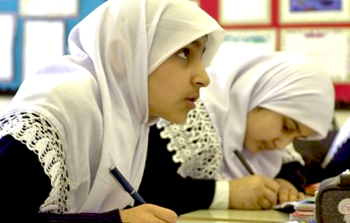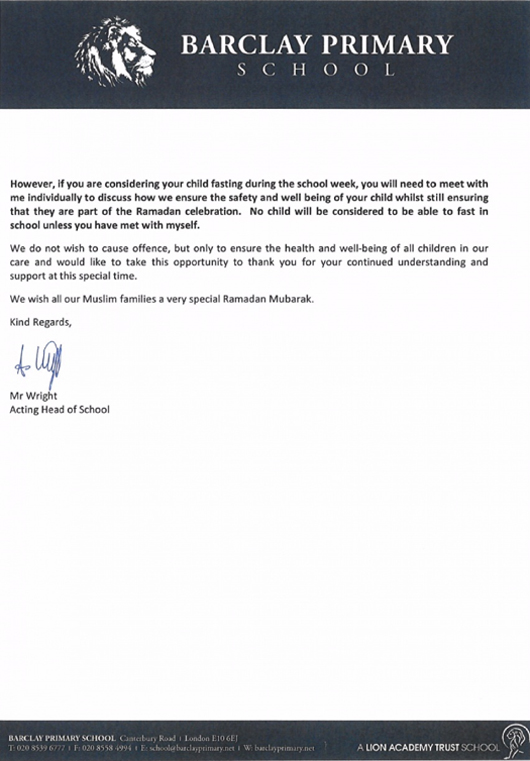London, Jun 16: Muslim pre-teens in four private secondary schools in London won't be allowed to fast during Ramadan without special permission.
 The Lion Academy Trust schools sent a letter home to parents announcing that Muslim students would not be allowed to fast during the school day for the upcoming holy month, which begins this week.
The Lion Academy Trust schools sent a letter home to parents announcing that Muslim students would not be allowed to fast during the school day for the upcoming holy month, which begins this week.
In the June 10 letter, school officials said that it is unhealthy for students to fast in “excess of 18 hours” during hot summer days. “Previously, we have had a number of children who became ill and children who have fainted or been unable to fully access the school curriculum in their attempts to fast,” they wrote.
Observing Ramadan, which comes at a different time each year, is one of the Five Pillars of Islam and considered one of Islam's central tenets. Pregnant women, the elderly and chronically ill people are not expected to fast, though parents differ on pre-teens, with some fasting for only part of the day and others not fasting at all.
School officials said they studied Islamic law before making their decision. “We have sought guidance and are reliably informed that in Islamic law, children are not required to fast during Ramadan,” the letter notes.
Some Muslims think that the private school trust overstepped its bounds and should leave the decision up to parents.
“We believe that the school should have adopted an advisory role, in that they recommend to the parents their point of view, and not act in an authoritarian manner,” Dr. Omer El-Hamdoon, President of the Muslim Association of Britain, tells TIME. “The process of fasting is spiritually uplifting for children, and serves a wider narrative to allow them to think about other poor children who are forced to fast due to the absence of food.”
After hearing complaints, the schools struck a deal to allow parents who object to the policy to meet with their school's headmaster to make accommodations. But for some, this compromise isn't enough.
“We believe, in general, parents are better placed to look after their children,” El-Hamdoon says, “and would not put their offspring in harm's way.”






Comments
Add new comment